|
Author
|
Topic: Value of orbiter fuselage gas sampler system?
|
tspang80
Member Posts: 13
From:
Registered: Nov 2024
|
 posted 02-08-2025 10:42 AM
posted 02-08-2025 10:42 AM
   
I recently acquired the component below and I was hoping to find out some more info on it (history, value, etc). It came from Johnson Space Center and has Critical Space Item stickers on the outside. It has numerous dates with the oldest being 1988 that I could find. I have researched it and could only find that it was associated with the OAFGSS (Orbiter Aft Fuselage Gas Sampler System). 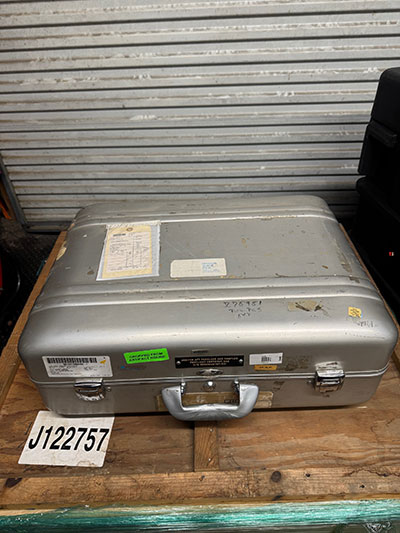 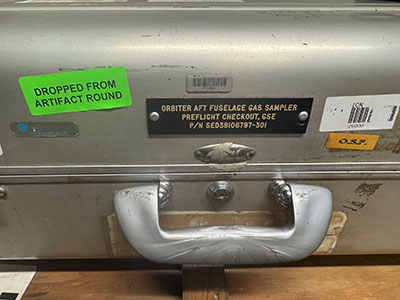
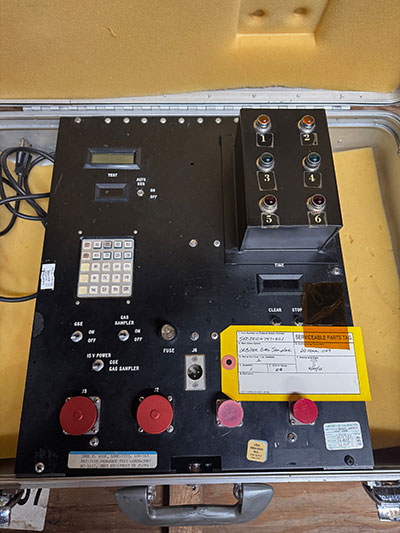
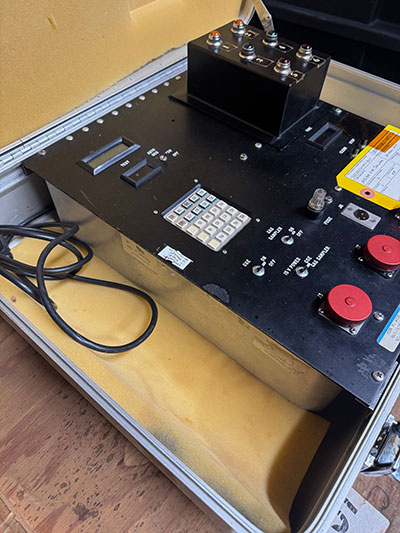
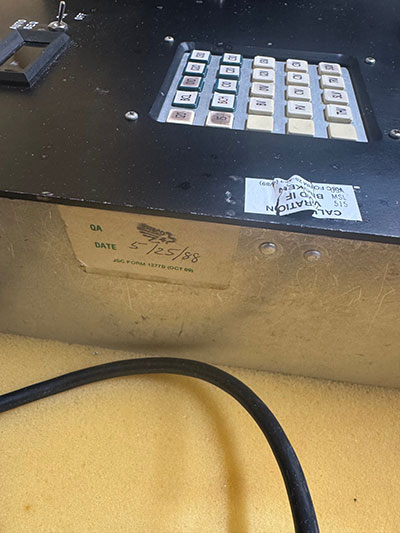
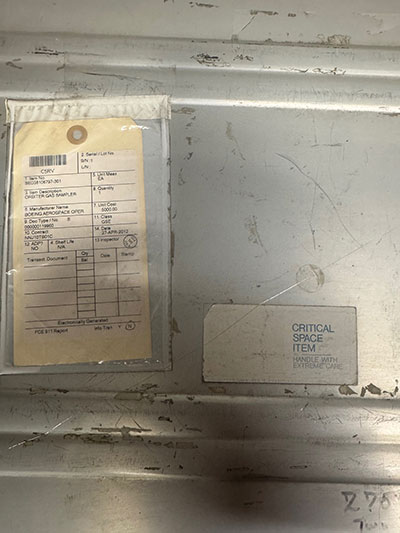
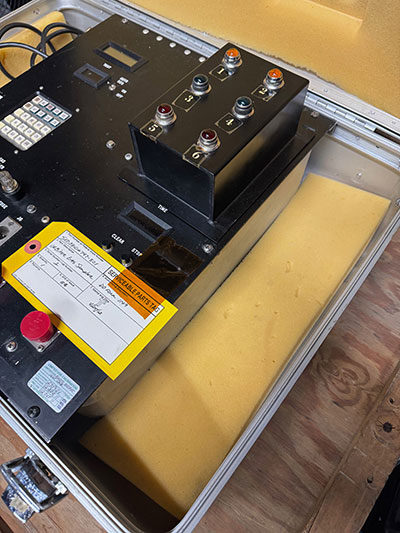
|
Jim Behling
Member Posts: 1962
From: Cape Canaveral, FL
Registered: Mar 2010
|
 posted 02-09-2025 02:33 PM
posted 02-09-2025 02:33 PM
   
Likely only has value to someone who used it. Just another piece of shuttle GSE. |
tspang80
Member Posts: 13
From:
Registered: Nov 2024
|
 posted 02-10-2025 07:31 AM
posted 02-10-2025 07:31 AM
   
Do you have an idea what it might have been used for?
|
Jim Behling
Member Posts: 1962
From: Cape Canaveral, FL
Registered: Mar 2010
|
 posted 02-10-2025 07:59 AM
posted 02-10-2025 07:59 AM
   
To make sure there wasn't a hazardous atmosphere in the aft fuselage either for flight or access, |
tspang80
Member Posts: 13
From:
Registered: Nov 2024
|
 posted 02-10-2025 07:12 PM
posted 02-10-2025 07:12 PM
   
Do you think it was used on the inside of the shuttle? |
Axman
Member Posts: 694
From: Derbyshire UK
Registered: Mar 2023
|
 posted 02-11-2025 05:01 AM
posted 02-11-2025 05:01 AM
   
No. It was used on the ground, preflight, temporarily attached via the gas line you can see in your photos to the shuttle prior to the aft fuselage access hatches being opened (if the gas sampler indicated it was safe to do so). It doesn't go inside the shuttle, it wasn't flown on the shuttle, it hasn't been in space. It is ground safety equipment.The shuttle aft fuselage is the bit at the back end where the main engines and the orbital reaction control systems are housed. It is separated from the mid-section where the storage bay is located by a bulkhead. In terms of safety, on the ground, if any hazardous gases are accumulating, they are most likely pooling there. |
tspang80
Member Posts: 13
From:
Registered: Nov 2024
|
 posted 02-11-2025 10:07 AM
posted 02-11-2025 10:07 AM
   
Thank you for your response. I appreciate the info! |
Headshot
Member Posts: 1367
From: Vancouver, WA, USA
Registered: Feb 2012
|
 posted 02-11-2025 10:53 AM
posted 02-11-2025 10:53 AM
   
Wasn't there an incident, about a month prior to the first shuttle launch, where one or more technicians were overcome by gasses accumulating in the shuttle's aft fuselage area? |
Robert Pearlman
Editor Posts: 53960
From: Houston, TX
Registered: Nov 1999
|
 posted 02-11-2025 11:29 AM
posted 02-11-2025 11:29 AM
   
Yes, at the conclusion of the STS-1 Countdown Demonstration Test (CDT) two technicians died. From NASA: The CDT was considered complete as soon as Young and Crippen exited the vehicle. Technicians soon returned to the pad to begin their work, including inspection of Columbia's aft compartment near the vehicle's main engines. Normally, this area was purged with gaseous nitrogen during the countdown to prevent the buildup of potentially dangerous concentrations of gaseous hydrogen or oxygen, and the gaseous nitrogen was replaced with air once the test ended. But for this test, engineers requested that the gaseous nitrogen purge continue to evaluate a possible leak in the system. Managers approved the request, but since it was not considered hazardous, it did not undergo a safety review, and the pad technicians were unaware the purge was still underway. As they entered the aft compartment, unaware of the risk, technicians John Bjornstad, Nicholas "Nick" Cannon, and Forrest Cole were quickly overcome by the lack of oxygen. Technicians William Wolford and J.L. "Jimmy" Harper tried to help and were also affected. Rescuers airlifted Bjornsted to a hospital, but he died en route. Cole never regained consciousness and died in the hospital on April 1. Mullon survived but died in 1995 of long-term complications from the accident. |
Jim Behling
Member Posts: 1962
From: Cape Canaveral, FL
Registered: Mar 2010
|
 posted 02-11-2025 02:32 PM
posted 02-11-2025 02:32 PM
   
I believe this is for other toxic gases. O2 analyzers are simple and small and used for GN2 rich environments. |
William Pace
Member Posts: 12
From: Titusville, Forida
Registered: Aug 2020
|
 posted 02-12-2025 01:12 PM
posted 02-12-2025 01:12 PM
   
The gas sampler equipment you have was for the sampling of the aft compartment during flight. The sample canisters were installed on the aft compartment access doors (50-1 and 50-2) respectively. The canisters were installed just prior to flight. During the flight the canisters would each open at a specified altitude to sample what gasses (LO2, LH2, Helium, MMH, N2H4, N2O4, or Ammonia) that could have been present at that point in the flight. This piece of equipment you have was part of the post flight analysis after the canisters were removed from the doors. I have installed and removed these for flight as I'm a former Advanced Systems Technician for the Space Shuttle. |
Axman
Member Posts: 694
From: Derbyshire UK
Registered: Mar 2023
|
 posted 02-12-2025 01:32 PM
posted 02-12-2025 01:32 PM
   
It still means the equipment was not installed, was not inside the shuttle, was not flown, and didn't go into space. |
William Pace
Member Posts: 12
From: Titusville, Forida
Registered: Aug 2020
|
 posted 02-12-2025 01:47 PM
posted 02-12-2025 01:47 PM
   
The safety sampling was accomplished by removing one of the bolts that the flight door was installed with and using hand held Dreager sampling glass tube and sniffing at bolt opening. Also, the post landing safety assessment team had equipment to take real-time samples for toxic commodities from the aft vent doors 8 and 9. They also checked the thrusters and orbital maneuvering engine for possible hypergol leaks. They also sampled for ammonia from ammonia spray boilers if the had been activated post landing. quote:
Originally posted by Axman:
was not inside the shuttle, was not flown, and didn't go into space.
You are correct that the equipment was never anywhere near or in the aft compartment. |
tspang80
Member Posts: 13
From:
Registered: Nov 2024
|
 posted 02-12-2025 07:38 PM
posted 02-12-2025 07:38 PM
   
Thank you for all the cool information!!! |


















